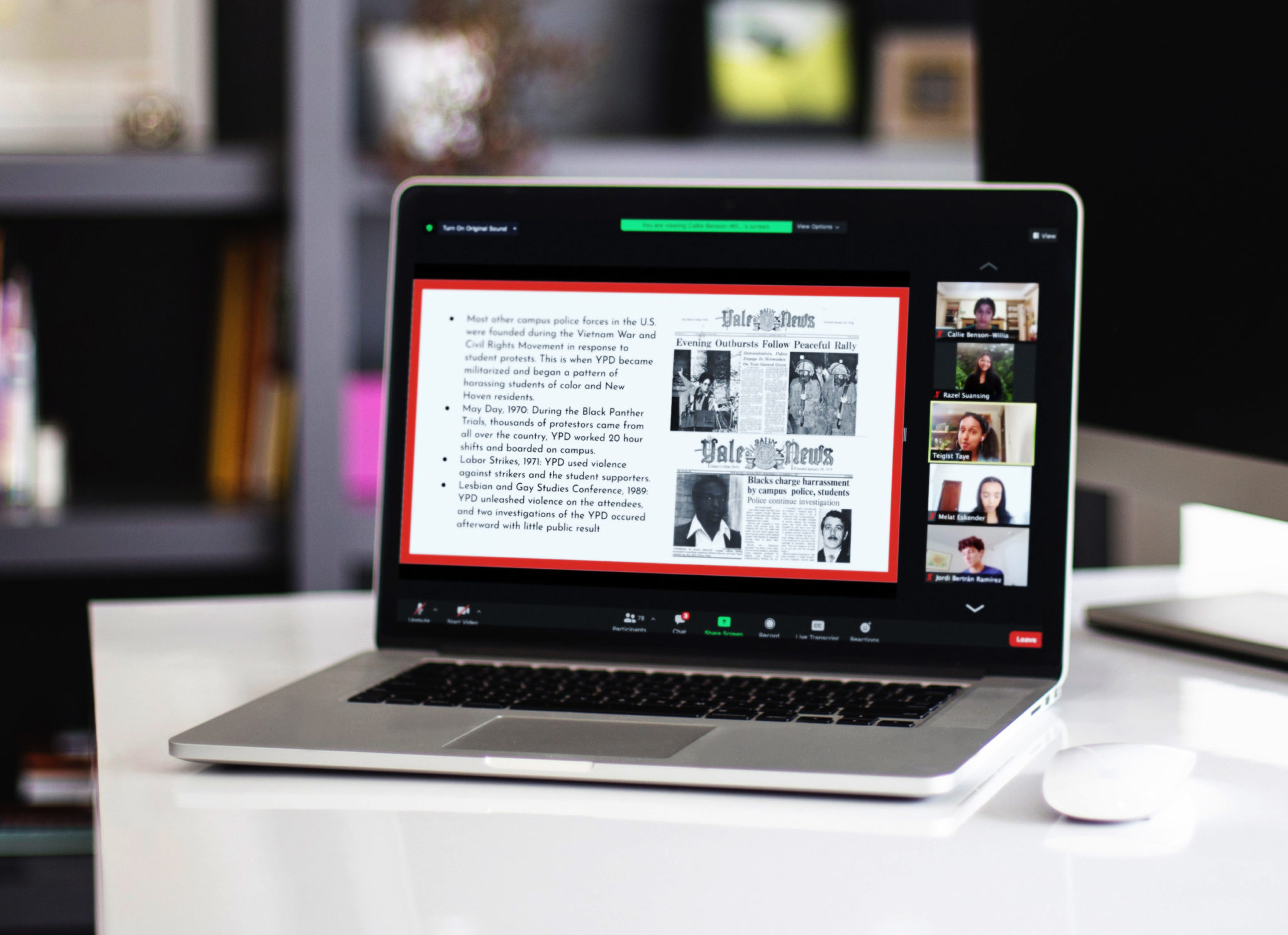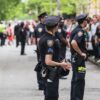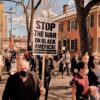On anniversary of Witherspoon and Washington shooting, Abolition Alliance at Yale discusses YPD’s future

Razel Suansing Contributing Photographer and Vaibhav Sharma, Photography Editor
Two years after Yale and Hamden police shot at Paul Witherspoon and Stephanie Washington and following the recent police killings of Daunte Wright and Adam Toledo, the Abolition Alliance at Yale held a virtual town hall on Friday night to discuss the future of the Yale Police Department.
On a Zoom call with over 70 participants, the AAY discussed the YPD’s history and reflected on its role in Yale and New Haven. The organizers — including Black Students for Disarmament at Yale, the Yale Undergraduate Prison Project and the Yale College Council — placed their conversations in the context of the recent deaths of Daunte Wright and Adam Toledo at the hands of police officers.
“We’re looking to discuss the future of policing on campus and what that means,” Jaelen King ’22, co-President of BSDY, said at the event. “I would think it is … very pertinent given a lot of the events and activities more and more.”
Eileen Huang ’23 also encouraged attendees to consider the meeting in light of the rise in anti-Asian American crimes around the country. Huang said that the increase in hate crimes has led politicians to advocate for more policing. Still, she cited the case of Angelo Quinto, a Filipino American, who died last December after police knelt on his neck for five minutes. Huang contended that the pandemic’s effects — including unemployment and housing instability — have been a significant factor in the rise of crime and said she stood with the AAY in advocating for police abolition.
Teigist Taye ’22, an organizer for BSDY, focused her presentation on the history of YPD and the two-year anniversary of Stephanie Washington and Paul Witherspoon’s shooting. Citing former YPD officer Bill Wiser’s memoir, Taye said that the YPD’s purpose was to “draw the boundary between New Haven’s residents, which are majority not wealthy, and the University’s wealthy white male student population.” Wiser wrote in his memoir that he was tasked with keeping “suspicious characters” off campus, including a “colored gentleman” who was “prowling around the entrances.”
YPD leadership did not respond to a request for comment on this story.
Taye said the YPD draws its power from the 1983 Connecticut Public Act. The act grants the YPD the same powers of arrest and patrol that municipal police forces have, but they work for the University and not the city. Throughout the event, organizers decried what they called the YPD’s lack of accountability.
Another organizer for BSDY, Callie Benson-Williams ’23, cited the AAY’s recently published report to claim that the YPD perpetuates the notion that New Haven is a “super dangerous city, and we need all these officers responding to violent crime.” However, Benson-Williams said that this notion may not be shared by New Haven residents. She cited an ACLU study, which found that 87 percent of residents thought that New Haven is somewhat safe or very safe.
Citing the AAY’s report, Benson-Williams also said that only 1.3 percent of the YPD’s calls are assault-related. Furthermore, the report found that the YPD only uses force in 0.83 percent of their call responses, and that 34.8 percent of the YPD’s calls are medical calls — leading Benson-Williams to question the department’s need for firearms.
The Yale Police Department was founded in 1894.
Razel Suansing | razel.suansing@yale.edu
Interested in getting more news about New Haven? Join our newsletter!









